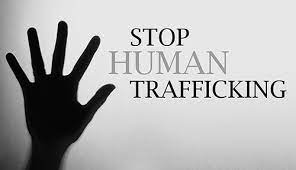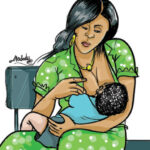If I’ve told this story before, forgive me, but I must tell it again. Years ago, a kinsman threw a huge first birthday party for his adopted son. Our family driver, also from our town, mocked the man (not to his face, of course, but within my hearing) and said what a fool he was for throwing a party for a child that was not really his. Adoption did not equal ‘real’ as far as the driver was concerned.
I can’t recall who he was talking to, but the person seemed to have agreed with him that our kinsman’s tragedy was twofold: that he didn’t have a ‘real’ son, and that he was ‘fool’ enough to throw him a party and invite the whole of Enugu.
Growing up, I didn’t know many people who adopted children (at least people who did so and admitted to it publicly). There was an unmarried, relatively wealthy woman who’d done so before I was born. A radical thing to do in those days, but when the kids were grown (in the 80s), she ordered them to marry because they were not “related,” and she wanted to ensure that her wealth was kept in the family, and in trusted hands. They did get married (yikes! Story for another day).
Much later, an aunt adopted two children after having nine of her own. I don’t remember that anyone disparaged her for that. If anything, she was spoken of as a hero. Even by people like my father’s driver who thought that adopted children were not one’s ‘real children.’ Most likely, the fact that she had other children – boys and girls – before adopting might have immunized her from the type of scorn that my kinsman had, much as the wealthy woman ‘vindicated’ herself by raising a couple she could trust.
Charge Bawa to court or release him
LG autonomy: A remedy for peace and economic security
My aunt had proved her fecundity (it is always the woman who bears the burden of proving that she is able to have children and not the man in our society, discussion for another day) and so could be granted a pass.
In a society as obsessed as ours (arguably) with about having children and about a woman’s fertility, to adopt is to publicly declare that you’ve failed in some fundamental way. In the past, our cultures had ways of ensuring that a woman who couldn’t bear a child (whether or not it was her fault or her spouse’s) still had her own children. In some cultures, she married another wife for her husband, and whatever offspring they had were hers too. Sometimes, if the childless couple suspected that the fault was the husband’s, the woman got pregnant by other men, but the children belonged to her husband. The idea was not to broadcast that one could not have children. The stigma around adoption wasn’t that the child wasn’t biologically the parents’, but that the mother (especially) could not bear a child. Sadly, that stigma has persisted even as more and more people are open to adopting (and being honest about it). And it has led to the proliferation of baby factories and the stealing of babies.
Someone recently shared a story on Twitter (abi ‘X’) about two women pretending to be youth corpers who kidnapped two children in Umuaka, Njaba LGA in Imo State. Another shared the photo of a woman she said was called Chioma, who befriended a young mother in a neighbourhood she moved into, often playing with the baby, only to one day abscond with the baby. None of the children in both cases have been found. If you ask me, chances are that those babies were kidnapped to sell on to other women/couples who want babies but do not want to legally adopt, or the abductors themselves left their usual base ‘pregnant’ and would return with months-old babies.
I hope that they are found, and the children returned to their grieving families, but the baby factory industry is one that has no place in any society at all. Yet, it thrives because there is a market for it. And I argue that there is a market for it because of the persisting attitude around adoption. And it doesn’t help that the existing bureaucracy around legal adoptions in Naija – from what I hear – is ridiculous as well. Long wait times, being told you can’t adopt a child born to a mother who isn’t from the same state as you, and so on and so forth.
We must change the narrative around adoptions. A child that is adopted is as much a real child as a child that shares DNA with you. They shouldn’t be marrying each other. The irony is that in our traditional cultures, there is the understanding that one doesn’t necessarily have to bear a child to become the child’s parent. Our idea of family is more encompassing than the West’s.
In many of our languages, the word for sibling is the same for cousin, is the same for someone from your town. I remember a schoolmate saying someone was their uncle because at her grandfather’s funeral, this man’s father was a pallbearer together with the deceased’s sons, and yet we draw the line at adopted children. And as for how women are sometimes shamed for being unable to have children? That one deserves its own piece. Suffice it to say that as long as these attitudes persist, we will have evil people doing everything they can to have their ‘own’ children, including stealing and trafficking other people’s babies.

 Join Daily Trust WhatsApp Community For Quick Access To News and Happenings Around You.
Join Daily Trust WhatsApp Community For Quick Access To News and Happenings Around You.


